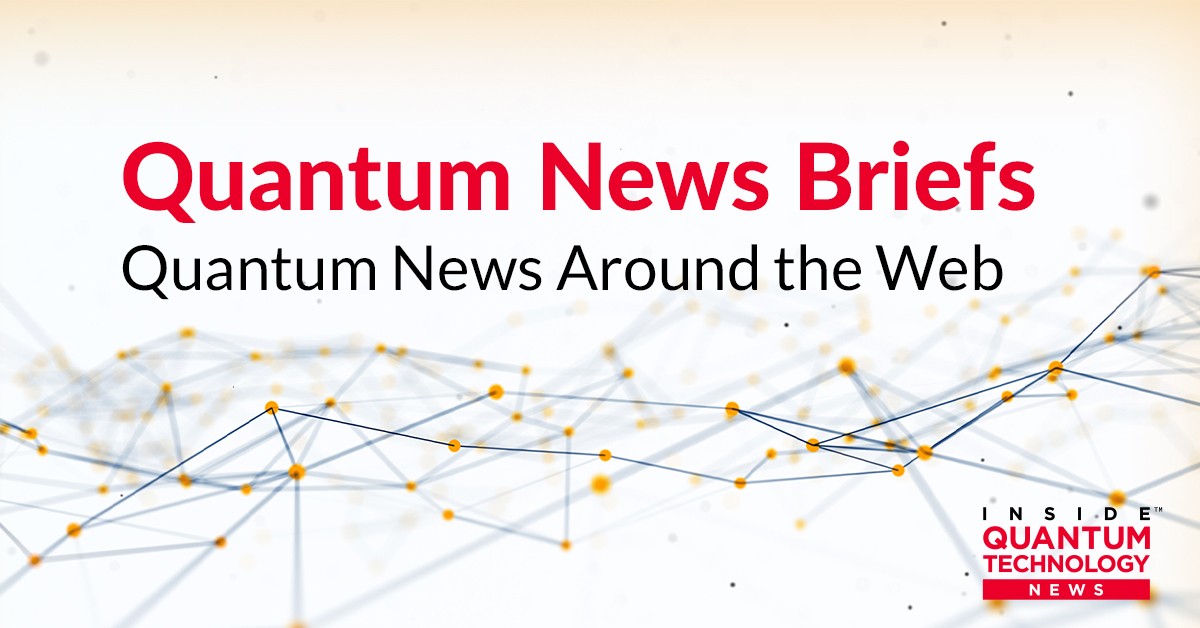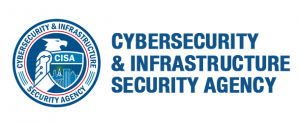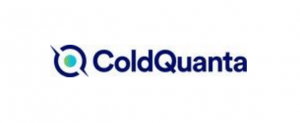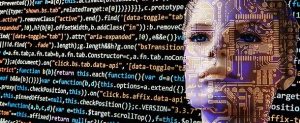Quantum News Briefs August 25: CISA’s Report: “Preparing Critical Infrastructure for Post-Quantum Cryptography”, ColdQuanta & Super.tech accelerating quantum research for Q-NEXT, Quantum AI breakthrough theorem from LANL shrinks need for training data & MORE

Quantum News Briefs August 25 begins with the Cybersecurity & Infrastructure Security Agency’s New Report “Preparing Critical Infrastructure for Post-Quantum Cryptography” followed by the announcement that ColdQuanta and Super.tech are Accelerate Quantum Research for Q-NEXT. Next covered is the Quantum AI breakthrough theorem from LANL that shrinks need for training data and MORE.
*****
CISA Releases New Report: “Preparing Critical Infrastructure for Post-Quantum Cryptography”
 The Cybersecurity and Infrastructure Security Agency (CISA) released new advice Wednesday, August 24, on ways critical infrastructure should prepare for potential security risks stemming from quantum computing. The PDF document “Preparing Critical Infrastructure for Post-Quantum Cryptography” can be read here.
The Cybersecurity and Infrastructure Security Agency (CISA) released new advice Wednesday, August 24, on ways critical infrastructure should prepare for potential security risks stemming from quantum computing. The PDF document “Preparing Critical Infrastructure for Post-Quantum Cryptography” can be read here.
While quantum computing provides greater speed and power than classical computers, the emerging technology comes with potential risks, including data breaches, that could threaten the security of business transactions, secure communications, digital signatures and customer information. The document cites National Critical Functions NCFs are the functions of government and the private sector so vital to the United States that their disruption, corruption, or dysfunction would have a debilitating effect on security, national economic security, national public health or safety, or a combination thereof.
IQT Cybersecurity Conference in NYC, October 25-27
CISA analyzed how each of the 55 NCFs is vulnerable to quantum computing capabilities. CISA also analyzed the challenges NCF-specific systems may face when migrating to post-quantum cryptography. The results of this analysis identified the urgent vulnerabilities and NCFs that are most important to address first to enable a successful migration to post-quantum cryptography.
CISA recommends that stakeholders responsible for these NCFs partner closely with NIST, DHS, and other
government agencies to ensure their preparedness to not only migrate themselves, but also to support the migration of digital communications across other NCFs. Action will be required of stakeholders across all NCFs, but only after these four create products and services that enable further updates to take place.
“While post-quantum computing is expected to produce significant benefits, we must take action now to manage potential risks, including the ability to break public key encryption that U.S. networks rely on to secure sensitive information,” Mona Harrington, acting assistant director for CISA’s National Risk Management Center, said in a statement. “Critical infrastructure and government leaders must be proactive and begin preparing for the transition to post-quantum cryptography now,” Harrington added.
*****
ColdQuanta and Super.tech Accelerate Quantum Research for Q-NEXT

Quantum company ColdQuanta recently announced its acquisition of Chicago-based quantum startup Super.tech in a marriage of research complements — ColdQuanta’s hardware capabilities with Super.tech’s software innovations.
The May 2022 announcement was good news for Q-NEXT, a U.S. Department of Energy (DOE) National Quantum Information Science Research Center led by DOE’s Argonne National Laboratory. Quantum News Briefs summarizes the announcement here from ColdQuanta’s site.
By bringing Super.tech into the fold, ColdQuanta, a Q-NEXT partner, can operate with a more software-aware approach to quantum technology, accelerating research in quantum materials and simulations, core research areas for Q-NEXT. And Super.tech, itself a Q-NEXT affiliate, can take its computational programs to the next level by connecting with ColdQuanta’s quantum machines and hardware expertise.
“This is an example of how a startup can identify and fulfill a need in an emerging area of technology and then grow to complement the mission of a more established technology company,” said Q-NEXT Director David Awschalom, who is also an Argonne senior scientist, the Liew Family professor of molecular engineering and vice dean for research and infrastructure at the University of Chicago Pritzker School of Molecular Engineering, and the director of the Chicago Quantum Exchange.
ColdQuanta also plans to provide the Q-NEXT collaboration with access to its quantum computer at its headquarters in Boulder, Colorado.
“We want to make sure that we’re exposing the functionality of these cold-atom-based devices so that they can be compared in an open playing field, so the community can make informed decisions about the viability and interactions with the different players in the space, including those within the Q-NEXT collaboration,” Noel said.
*****
Quantum AI Breakthrough Theorem Shrinks Need for Training Data
 Training a quantum neural network requires only a small amount of data according to a recent paper co-authored by Lukasz Cincio, a quantum theorist at Los Alamos National Laboratory. The findings, published in Nature Communications, indicate that training a quantum neural network requires only a small amount of data. The new proof upends previous assumptions stemming from classical computing’s huge appetite for data in machine learning, or artificial intelligence. “This provides new hope for quantum machine learning. We’re closing the gap between what we have today and what’s needed for quantum advantage, when quantum computers outperform classical computers,” in a followup interview with HPCWire summarized below.
Training a quantum neural network requires only a small amount of data according to a recent paper co-authored by Lukasz Cincio, a quantum theorist at Los Alamos National Laboratory. The findings, published in Nature Communications, indicate that training a quantum neural network requires only a small amount of data. The new proof upends previous assumptions stemming from classical computing’s huge appetite for data in machine learning, or artificial intelligence. “This provides new hope for quantum machine learning. We’re closing the gap between what we have today and what’s needed for quantum advantage, when quantum computers outperform classical computers,” in a followup interview with HPCWire summarized below.
One key aspect of the results, Cincio said, is that they yield efficiency guarantees even for classical algorithms that simulate quantum AI models, so the training data and compilation can often be handled on a classical computer, which simplifies the process. Then the machine-learned model runs on a quantum computer.
“That means we can lower the requirement for the performance quality that we need from the quantum computer, with respect to noise and errors, to perform meaningful quantum simulations, which pushes quantum advantage closer and closer to reality,” Cincio said.
The speed-up resulting from the new proof has dramatic practical applications. The team found they could guarantee that a quantum model can be compiled, or prepared for processing on a quantum computer, in far fewer computational gates, relative to the amount of data.
“The efficiency of the new method exceeded our expectations,” said Marco Cerezo, a Los Alamos expert in quantum machine learning. “We can compile certain, very large quantum operations within minutes with very few training points—something that was not previously possible.”
*****
QpiAI Announces AI Enabled QpiAISense™ Platform for Worldwide Deployment for Controlling Superconducting, Spin and Ion-Trap Qubits

OpiAI, An Indian-based software company has introduced a new platform to support the development of room temperature qubits and help scientists more easily control quantum computing systems according to Scientific Computing World. Quantum News Briefs summarizes.
The QpiAISense platform is thoroughly tested with real-world application such as logistics, Finance, materials discovery, AI/ML applications via interfacing with QpiAI-Quantum software libraries. ML acceleration is the key differentiator to tune the Qubits continuously and to ensure high performance and lower operational error of the qubits.
The QpiAI platform will integrate the Trion SoC onto the QpiAISense platform. Trion will be a gateway for hybrid Classical-Quantum compute software development and application. Current applications which run on QpiAISense will runn smoothly with both the AI20P001 and Trion integration of QpiAISense.
Dr Nagendra Nagaraja, CEO and Founder of QpiAI, suggested, ‘This is a very important milestone for QpiAI. We got our Quantum compute platform correct and it is scalable. QpiAISense will be base platform on which we will deploy future hardware technologies, as well as software development. As we evolve into logical 1024 qubits (millions of physical qubits), we have all components to accelerate Quantum adoptions and enable our customers to reap the benefits of Quantum advancement. Our customers will be well supported with our technology roadmap to provide them with technology security to solve their domain problems confidently. QpiAI will be shipping QpiAISense starting September-2022 to key customers and partners globally and will provide them with all updates we will come up with related to AI and Quantum technologies in coming years.’
QpiAI is integrating Quantum computing and AI vertically to offer solutions to areas like manufacturing, industrial, transportation, finance, pharma and materials. It has various software platforms and products including QpiAI-pro, QpiAI-explorer, QpiAISense, QpiAI-logistics, QpiAIopt, QpiAIsim, QpiAIML. It is building complete hardware stack based on 3 chip solutions of Trion (universal optimizer Chip), Bumblebee (scalable cryogenic control chip) and scalable spin-qubit based QPU (Quantum processing unit) , which can be scalable to 2048 logical qubits. QpiAI is currently ready with room temperature control electronics based on its hardware platform QpiAI-Sense. QpiAI is subsidiary of Qpi Technology.
*****
Sandra K. Helsel, Ph.D. has been researching and reporting on frontier technologies since 1990. She has her Ph.D. from the University of Arizona.





















